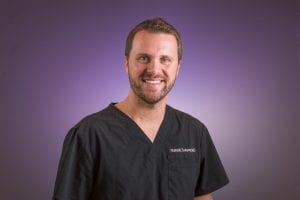Disclosure :: This post is sponsored by Children’s Hospital New Orleans.
 Mardi Gras is officially over which means king cakes are no longer our go-to lunch at the office or at home. The array of flavors and what seemed like an endless variety of these festive treats made it nearly impossible for us to turn down. What’s even scarier is our habits as parents tend to reflect in our children.
Mardi Gras is officially over which means king cakes are no longer our go-to lunch at the office or at home. The array of flavors and what seemed like an endless variety of these festive treats made it nearly impossible for us to turn down. What’s even scarier is our habits as parents tend to reflect in our children.
Let’s break down some numbers on childhood obesity.
According to the most recent statistics at the Centers for Disease Control and Prevention (CDC), in 2015-2016, the overall prevalence of obesity for children aged 2-19 years old was 18.5% and affected about 13.7 million children and adolescents. Listen to that number again. Over 13 million kids are struggling with obesity. If that number isn’t jaw-dropping enough, then the fact that obesity costs the United States Healthcare System $147 billion per year might surprise you.
Obesity is defined as a body mass index at or above the 95th percentile. It can have both gastrointestinal (GI) and non-gastrointestinal (non-GI) complications. Who’s ready for some medical jargon? GI complications include Non-Alcoholic Fatty Liver Disease (NAFLD), chronic abdominal pain, gallbladder disease, pancreatitis, and abnormal cholesterol. NAFLD can eventually progress to liver dysfunction and even liver failure. Non-GI complications include a higher risk of diabetes, joint problems, high blood pressure, and breathing problems. Even more prominent are the psychological problems obesity comes with including a higher risk of anxiety and depression, low self-esteem, and bullying in schools.
So, how can you, as a parent, get ahead of these issues?
According to the American Academy of Pediatrics, fewer than 1 in 10 children eat the recommended daily amount of vegetables. I know getting your child to consume the proper amount can be a challenge, but it’s incredibly important for their health.
Physical activity is another issue. Take the 10-5-2-1-0 approach! Ten hours of sleep, 5 fruits and vegetables, <2 hours of screen time, 1 hour of physical activity, and ZERO sugar-sweetened beverages. My last comment before leaving a patient’s room is “if it’s sweet and you can pour, NO MORE!”
At what age is it necessary to start healthy habits?
The answer is EARLY and NOW! Preventative factors include healthy diet choices, regular physical activity, limiting sedentary time (screen time), getting optimal sleep, and managing stress. Protective individual factors include early feeding behaviors (Birth to 2 years) to include breastfeeding, later introduction of foods and feeding based on hunger. Contrary to past beliefs, it is not necessary for your baby to finish every bottle. Rather, it’s more important to get the calories they need over a full day. We should practice “Responsive Feeding.” This means that you watch for your baby’s hunger and fullness cues, respond warmly and promptly, and focus on creating a positive feeding experience.
Sleep matters from the start. Babies and children thrive on routines, including consistent bedtimes and naptimes. Active babies become active children! Babies and toddlers need active play to grow healthy. Children learn through active play and conversations.
In all, my best advice is to be a role model for your children by eating healthy, taking the time to be active, and limiting your own screen time.
 About Dr. Russell Zwiener
About Dr. Russell Zwiener
Dr. Russell Zwiener is a Gastroenterology, Hepatology, and Nutrition specialist at Children’s Hospital. Dr. Zwiener also serves as the hospital’s Director of Endoscopy and Director of Pediatric Advanced Endoscopy. After earning his first medical degree from St. Matthews University in Grand Cayman, Cayman Islands, Dr. Zwiener completed a one-year general surgery internship at the University of Texas Health Science Center in San Antonio. He then completed his general pediatrics residency at Oklahoma Unversity Health Science Center and a pediatric gastroenterology fellowship at LSU Health New Orleans. He trained further for an additional year in San Antonio to complete a pediatric advanced and therapeutic endoscopy fellowship at Baylor College of Medicine. Dr. Zwiener is board-certified in both general pediatrics and pediatric gastroenterology. Although Dr. Zwiener treats all pediatric gastrointestinal conditions, he specializes in caring for children with pancreatobiliary disorders including acute and chronic pancreatitis, gallbladder, and bile duct disorders. Dr. Zwiener performs highly specialized procedures including endoscopic retrograde cholangiopancreatography (ERCP) and Endoscopic Ultrasound (EUS). When asked why he chose to specialize in this field, Dr. Zwiener explained, “There is a great need for pediatric specialists trained in this field. Being one of the very few physicians performing these procedures on children in the country, it is an honor to take care of children with pancreaticobiliary disorders in New Orleans and the entire Gulf South.” Dr. Zwiener is married to his wife, Jaime, who is a New Orleans native, and parents two young daughters, one of which has special needs. Dr. Zwiener has a special place in his heart for caring for children with special needs.
















